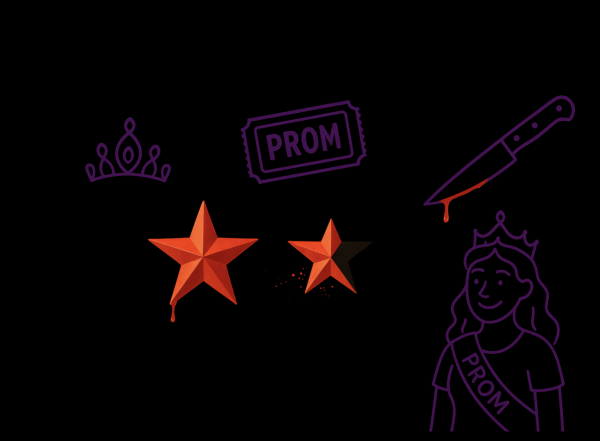Teachers’ love for “ideal” student makes others feel inferior
The education system’s ideal student is always gifted and receives more awards and attention from teachers than kids who do not fit into the “cookie cutter” standard.
Sometime around April every year, the school hosts their underclassmen award ceremony. This is where students are recognized for their GPA in the form of Summa Cum Laude awards, and department awards are also given.
Each department gets together and compiles a list of students who are “exceptional.” They then narrow it down to a short list of students who fit a certain criteria. This usually includes the basic “good grades, always gets work in on time, and participates in class” characteristics, but this does not leave room for much diversity.
Each year, during the underclassmen award ceremony, it is the same students receiving the department awards. Oftentimes, they also are recipients of Summa Cum Laude. There is no diversity in the awards or the recipients.
When the award is presented, the department head, or the teacher giving the speech, says a few words about the student. Last year when I listened to these speeches, I could have sworn I had deja vu 20 times over. Each speech was the exact same.
This student is special for reasons A, B, and C. The thing is, though, reasons A, B, and C are found in every single one of the students receiving the awards.
If I made it into a game, where each department head gives their speech and then you have to match a list of recipients to the award, there would be no way that you could guess who got the award. You lose.
Teachers also seem to love kids who participate. Teachers pets, you might call those kids, but at the end of the year, they are the ones who get the awards. I won’t deny it, in some of my classes, I cannot shut up. Not only because I love my teachers, but because I love their classes too. I’m lucky, I’ve never had a fear of public speaking, but I have so many friends that do. They don’t like to raise their hands in class because they are afraid people will think that they are stupid.
Some teachers just don’t understand that. A student can still love a class and work really hard in it, but not participate a lot. Not everybody is comfortable talking in front of people.
Of course I also understand that good grades should be celebrated. They often reflect hard work and determination on the part of the student, but I don’t think that’s always the case.
Good grades are not the only thing that should be celebrated by the school. The American education system has conditioned students to believe that grades are the most important thing in the world.
According to a study by Boston College researcher Karen Arnold, students who are more intellectual actually tend to struggle more in high school. Arnold believes that valedictorians and other students with a high GPA value getting an A, instead of a deeper understanding.
Having good grades does not make you a good student. Not everyone has the same natural ability to pick up and retain new information. Some students have to work 10 times. harder just to get the basic level of understanding as naturally “gifted” learners. The school does not recognize that.
The school pushes students to take harder classes, like AP and honors. These classes end up separating students based on “ability” and leads to the burnout of a lot of kids in advanced classes. In an article written on the topic of awards last year, it discussed the same issue – you’re told to take hard classes, you take them, you do horribly, you win no awards and you burn out. Clearly, this is a recurring issue, it’s not just me.
Starting in elementary, kids are separated into the regular and advanced classes, which is already a terrible idea but don’t get me started on that. From then on, it seems like students in advanced classes are almost appreciated more than kids in regular classes.
The education system seems to hold students in advanced classes on a pedestal. I have always been an “honors” kid, but when I got to high school, I chose to take regular math. It is not that I am not good at math, I just do not enjoy it. In those regular classes I’ve heard my teachers say things like, “That’s a little more complicated, so we won’t be working on that unit. An honors class would pick it up quicker but we don’t have the time to cover it.”
The problem with that is telling your regular class that they don’t have the ability to do something that a student in an honors class would. That hurts.
Stanford professor Linda Darling-Hammond says that a developing brain learns better in a state of positive emotion. The brain needs safety and warmth in order to efficiently develop. I know my brain does not feel very safe or warm when I’m told I don’t have the capability to do something.
At the underclassmen awards last year, I noticed that almost every student that received a department award was in mostly honors classes and certainly held a high “A” in the class.
This confused me. For a school that claims to celebrate individuality, the awards certainly are not a good reflection of that. That “something” that the awards are missing is diversity.
Not diversity in the traditional sense, of course that’s good too, but different types of students. Not just the kids who have a 4.3+ GPA, study hours every night, and always raise their hands in class. Maybe the kids who sit in the back of the classroom, too shy to raise their hands in front of the class, the kids who come to teachers for extra help, the kids who try, but don’t get noticed by their teachers because they aren’t the loudest and smartest in the room. Those kids deserve some recognition too.

Emma Tomlinson is a senior and the arts & culture editor for N the Red. She enjoys hiking, traveling, and eating bow tie pasta.






